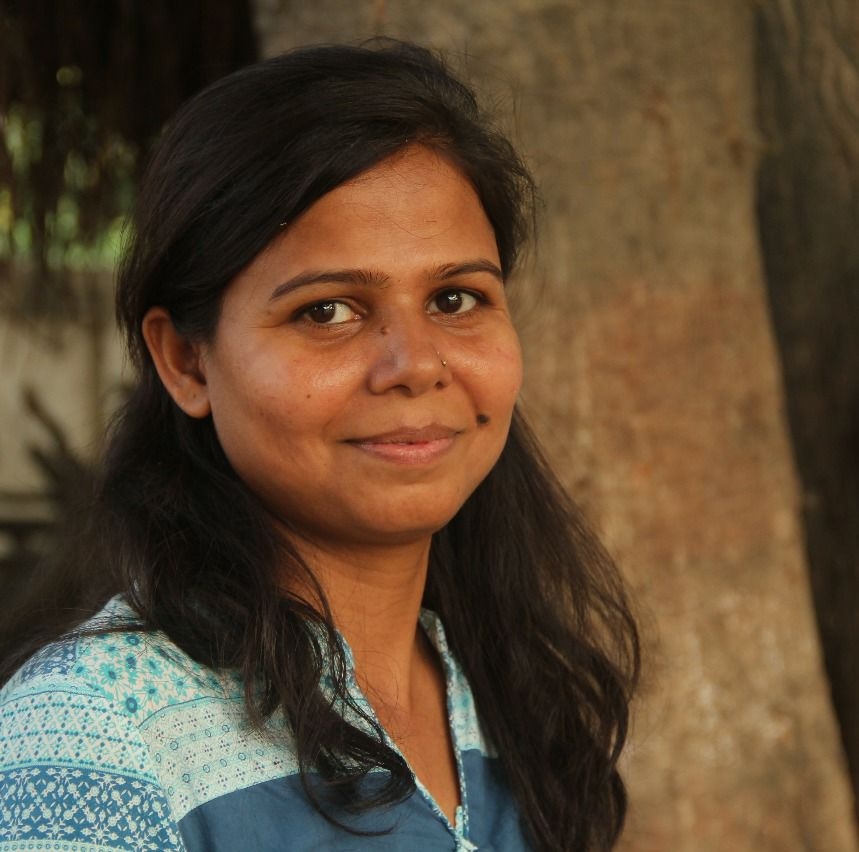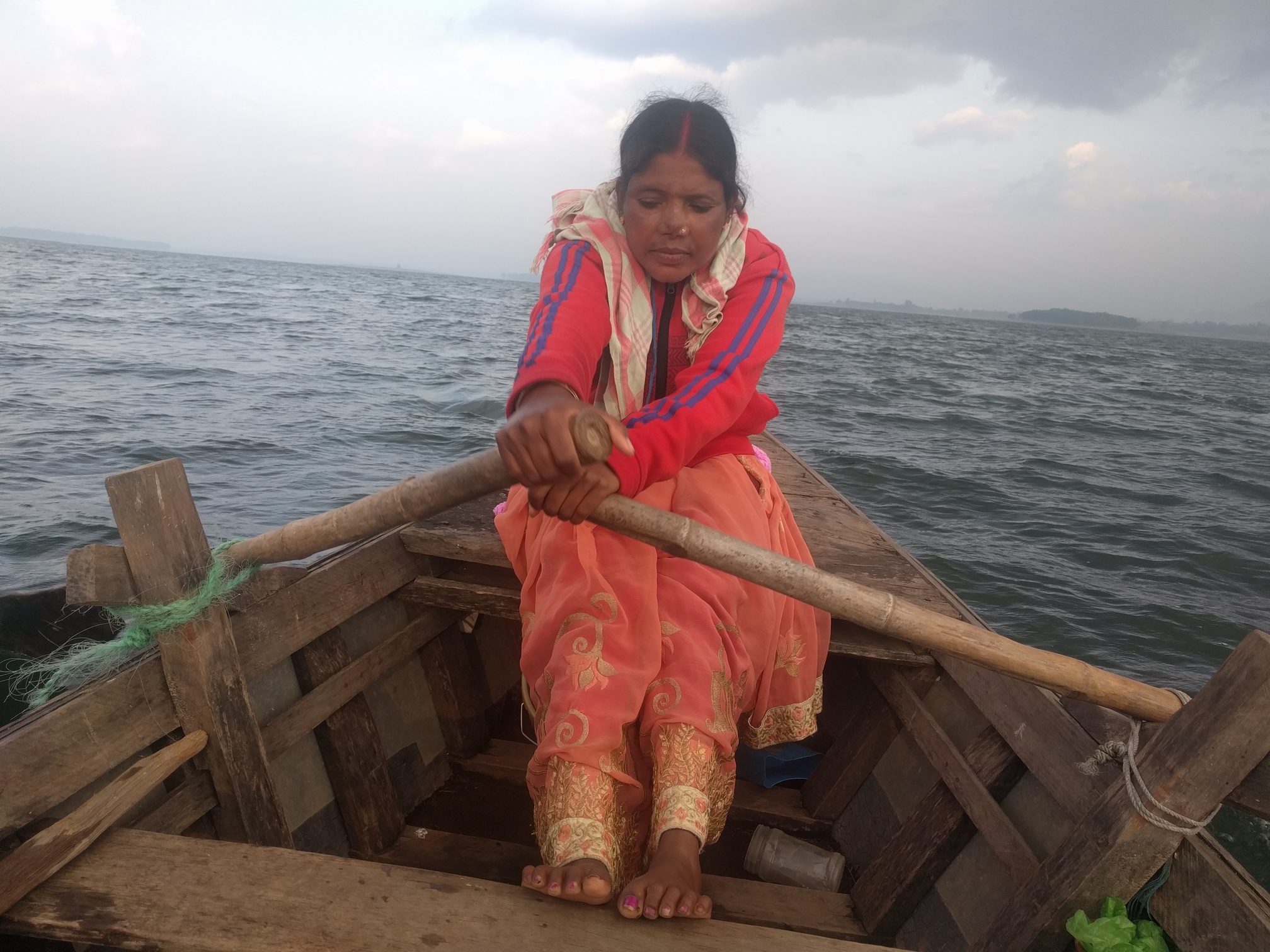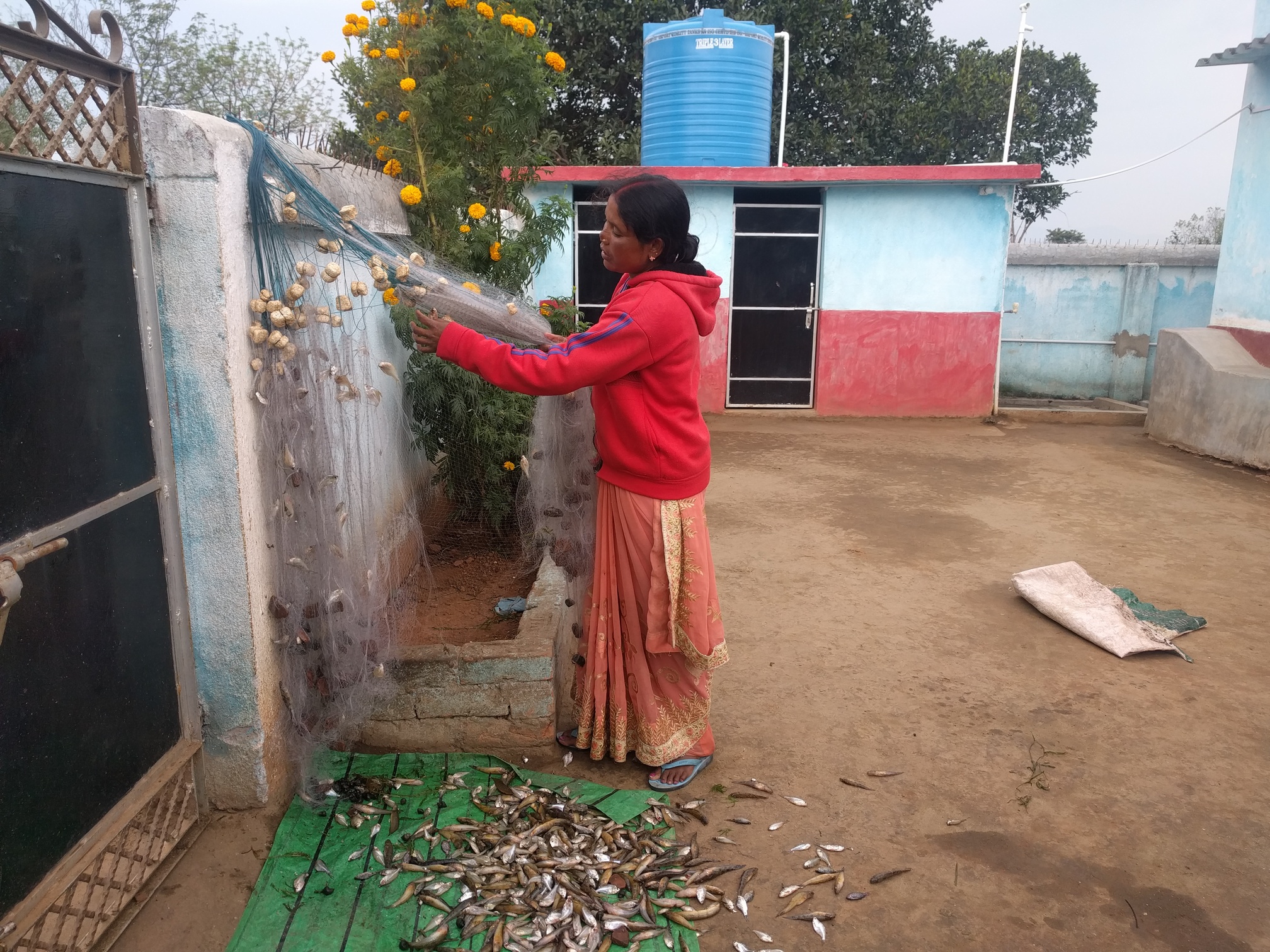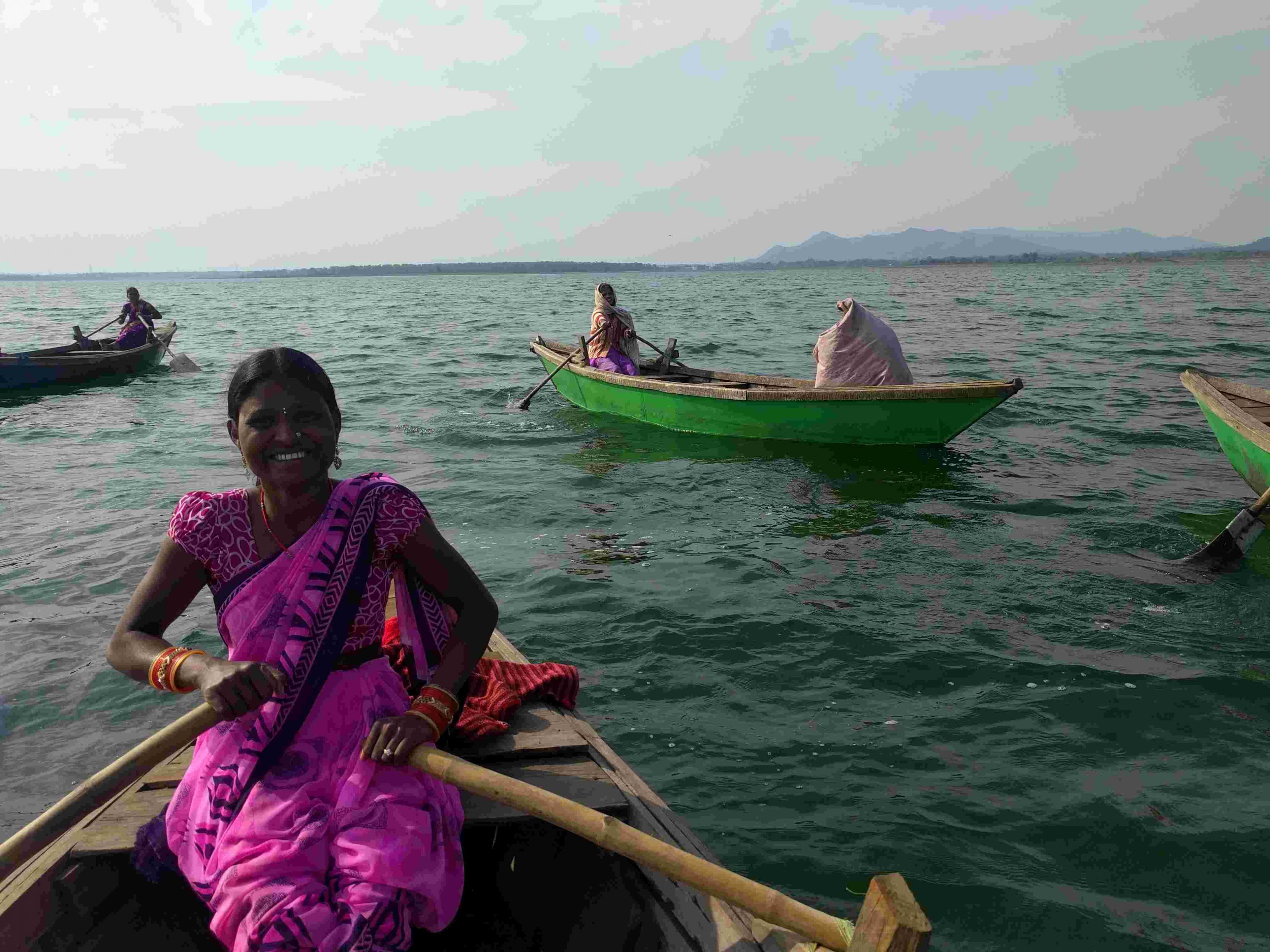She is a mother who courts choppy waves every single day … just for her children
Boat fishing is the traditional occupation of the men in the community where Sheila Naik lives. Her story is special because she has broken into the male-dominated occupation

What all do the mothers do to raise their children? We profiled some of the mothers who are working beyond the conventions of society and the threshold of domesticity to provide for their families. Meet Sheila Naik who wakes up at 3 AM every day to catch fish.
This is the story of a brave mother who puts her life to risk each day by running a boat. “Of course, I feel scared. But what is to be done. I quell my fear and set out anyhow to earn for my children’s education,” said Sheila Naik sitting in her boat amid deep water at six in the morning.
The dam in which Sheila, 34, plies her boat is considered to be a big dam of Jharkhand. Sheila lives in the Mahishpur Bagan Tola of Angada block, about 35 kms away from Ranchi district headquarters. There are 45 houses in this colony. Boat fishing is the traditional occupation of the men of this community.
The story of Sheila Naik, like the dozens of other women who catch fish by boat, is special because these are women who have broken into the male-dominated occupation for years. In fact, many women from Sheila’s community, inspired by her, had the gumption to take up boat-fishing.
“When I get up at three in the morning to go to the dam, I fondly caress my sleeping children. It is difficult to say whether or not I will be able to return home,” said Sheila emotionally and added: “When the wind blows hard on our faces, it seems that we may not survive, but in a short while, we breathe a sigh of relief when the wind subsides.”

Fishing by running a boat in the dam is undoubtedly risky, but Sheila rides across these waves every day. Water stretches everywhere around from the dam in which she catches fish. They have to drop nets in the middle of the dam to trap the fish for three to four hours in the morning and three to four hours in the evening.
“I have always lived off bare minimum sustenance but when my children were born, I could not have fed them poorly. So, whether in desperation or bravery, I took up this job,” said Sheila and added: “I am happy right now because my children are studying in a good school. We are able to arrange their fee and school books by working so.”
Sheila was born into a poor family. Being the eldest of four sisters and two brothers, she was married at the age of 15. The situation at her husband’s house was also quite bad. It was becoming difficult for her to support her three daughters and a son by wages. So, she learnt the skills of boating, which had been her husband, Karthik Naik’s occupation for 18 years.
We spent 24 hours with Sheila as a reporter to observe very closely her performing a very challenging job. We closely studied her entire day’s schedule. With Sheila, we also accompanied her to the dam on that day and sat in the boat and stayed in the middle of the dam for two to three hours.
“I’m not afraid of these waves anymore. We field them every day. I was worried because you are sitting with me on this boat,” Sheila told me. Her words made me emotional.
Sheila spoke these words when the boat had suddenly started to wobble upon the water for a while. These waves unsettled both her and me momentarily.

This was my first experience in the career of reporting when I had come across such a scare. This wave which lasted about two to three minutes, raised a million questions in my mind. I had given up all hope of escape, while Sheila rode on firmly at a fast pace along the wave despite concern written all over her face.
“Every day it happens to me, so now it has become a habit. I have been doing this for the past five-six years, but nothing untoward has happened so far.” Sheila was constantly driving the boat along the wind.
When I looked at Sheila after two to three minutes, I saw on her face the confidence of averting a major accident.
“We don’t have farming land. We aren’t educated so much that we can do regular jobs. Now, we are left with only this skill with which we are able to raise children well,” said Sheila while mooring her boat with a rope outside the dam.
Despite facing enormous risks every day, she cannot give up her job as it is a question of her family’s bread and butter. The wind that comforts us in the heat is a risk for all those women like Sheila, who run a boat.
When Sheila was in the middle of the dam, she was also pitted between life and death, but her priorities were something else when she exited the dam.
Sheila’s voice broke my reverie. “Please come to my home. My children will be getting ready to go to the school. Let me see whether they made something to eat or not.”

I realised that she did not have another moment to think about the danger lurking inside the dam, whereas, everything was still circulating in my mind.
Her husband started the motorcycle and she walked to the house with her catch of the day in a bag.
“By the time I reach home with the fish, the children are all set to leave for school. If the daughter gets up early, she even makes food,” said Sheila while opening the door.
As soon as she reached home, she started removing the fish trapped in the net because by 7-8 AM, the fish had to reach the Lalpur Bazaar in Ranchi, about 30 kms away from her home. After selling her fish, she reaches home by noon and then proceeds yet again to drop the same net after a couple of hours.
“Without eating anything, I leave for the market to sell fish. If they are not delivered in time, these fish are not of any use. The people who buy come early in the morning,” said Sheila while weighing the fish on her scales.
Sheila Naik deftly performs the full responsibility of trapping fish in the net to taking it to the market. But she also has to work hard and risk her life daily in order to do so.
Depending on the size of her catch, Sheila’s daily income is between Rs 500 and Rs 2,000. She stays back only on days with rough weather every other day is workday for her.
Extremely punctual, her schedule gets upset only upon bad weather.
“Many people come to see me ride a boat, little aware of its risk factor. People who see my work appreciate me. I feel good but then my work is no bed of roses,” admitted Sheila.
This is part two of the series, Mothers of India
Read part one of the series here
Read part three of the series here

